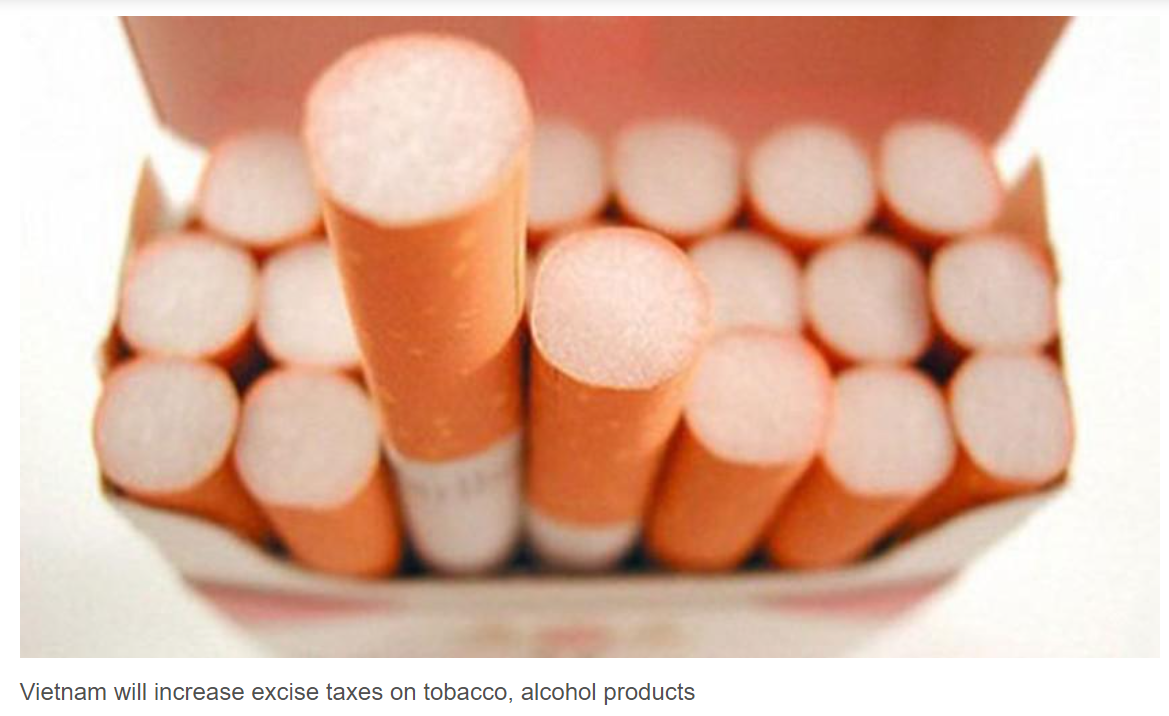Vietnam to increase excise taxes on tobacco, alcohol products
According to the Decision No. 508/D-TTg approving the Strategy for Tax System Reform to 2030 signed by Deputy Prime Minister Le Linh Khai, Vietnam will have a road map to increase excise taxes on tobacco, and alcohol products.
One of the solutions for implementing the strategy is tax policy reform. Specifically, regarding value-added tax, the government will expand the tax base by reducing the group of goods and services not subject to value-added tax and the group of goods and services to the 5 percent tax rate with an orientation towards the application of a marginal tax rate.
Additionally, Vietnam will increase the value-added tax rate according to a certain road map with an adjustment of the revenue threshold by applying the deduction method to suit reality. Simultaneously, the tax sector will develop the application of percentage tax for taxpayers whose revenue is below the threshold or is not eligible for the deduction method.
For excise tax, there will be an amendment and more people will pay taxes to regulate consumption in accordance with the shift in consumption trends in society and the Party and State’s orientation on consumption tax for protecting people’s health and the environment.
Accordingly, the government will develop a road map for adjusting tax increases for tobacco, beer, and alcohol products to limit production and consumption and fulfill international commitments as well as review and adjust the excise tax rates on several commodity items to suit social-economic conditions in the 2021-2030 period.
For corporate income tax, the sector will amend or abolish tax exemption and reduction incentives that are no longer consistent with development requirements and international integration requirements while implementing corporate income tax incentives for small and micro enterprises…
When it comes to personal income tax, the sector will also undertake an additional review of taxpayers while paying attention to adjusting the amount and tax rates suitable to taxable income and the nature of each type of income.
Last but not least, the sector will supplement regulations on tax exemption and reduction following the country’s socio-economic context in each period and international practices.
Source: SGGP


 English
English




